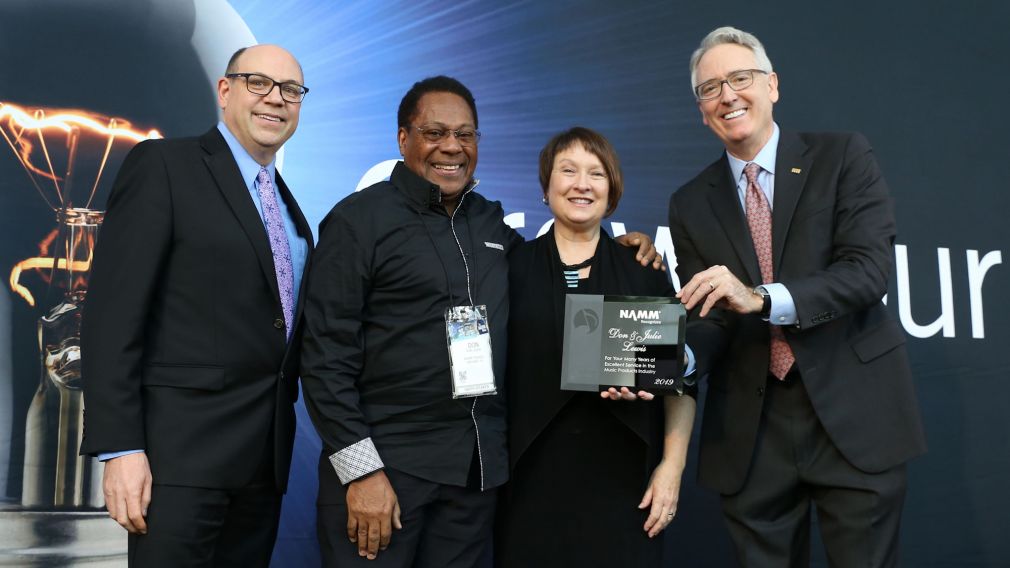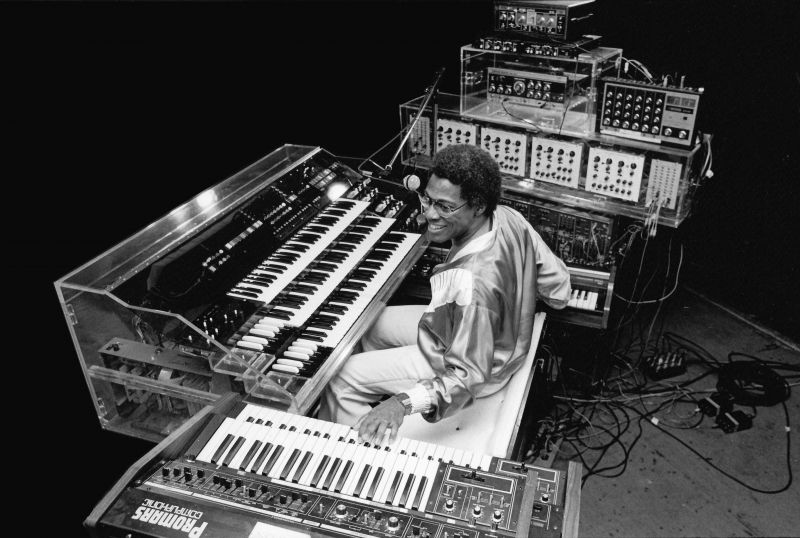Remembering Don Lewis

In early November, electronics engineer, multi-instrumentalist, and vocalist Don Lewis passed away, leaving behind a legacy of innovation.
Born in 1941, Lewis grew up in Dayton, Ohio, and discovered his passion for music as a child after witnessing a performance of his church organist. He later attended the Tuskegee Institute (now Tuskegee University), where he majored in Electronics Engineering. While there, Lewis sang in the Tuskegee Chorus and performed at rallies led by Dr. Martin Luther King, Jr. In 1961, Lewis enlisted in the U.S. Air Force as a nuclear weapons specialist, serving four years in Roswell, New Mexico. At the end of his service, he relocated to Denver, Colorado, where he began working as an engineering technician, choir director, and nightclub musician. During this time, he was commissioned by the Denver Symphony Orchestra to write three symphonic works.
Eventually, Lewis resigned from his engineering job to pursue music full-time and ultimately chose to move to Los Angeles. While in L.A., Lewis collaborated with notable names in the industry, including Michael Jackson, Quincy Jones, and Sergio Mendez, and opened for the Beach Boys on their 1974 tour.

By the late 1970s, Lewis again picked up and moved to San Francisco, where he scored for shows like Rainbows End and You Were There for PBS. During this period, he also began sharing his experiences as an educator at the University of California at Berkley and as a guest lecturer at Stanford and San Jose State universities. Always one to share his joys of making music, he also started a pair of programs, Young Expressions and Say “Yes” to Music!, to encourage children’s interest in music and the arts.
As an impressive contributor to the advancement of our industry, Lewis is perhaps best known for creating an early integrated sound controller for analog synthesizers named the Live Electronic Orchestra (LEO). Designed in 1974 and completed in 1977, LEO predates MIDI by a decade and links synthesizers together in live performances. The instruments which comprised LEO include the Hammond Concorde, four Oberheim Expander Modules (SEM), ARP Pro-soloist, a pair of ARP 2600s, Roland Jupiter 4, Roland Promars, Roland Space Echo, Roland Digital Chorus, Roland VP-330 vocoder, Roland TR-808, Hammond X-66 pedestal, Pascetta Polyphonic Keyboard, and a Roland 8 channel mixer. For a decade, Lewis collaborated with another pioneer in sound, Ikutaro Kakehashi, on the rhythm units, including the FR-7L, CR-68, CR-78, and the Roland TR-808.
Lewis’s work with LEO and collaboration alongside other innovators increased the popularity of different synthesizers, such as the Yamaha DX7. As a pioneer and innovator, his story was captured in the 2020 feature-length documentary film, Don Lewis and the Live Orchestra (formerly The Ballad of Don Lewis: The Untold Story of a Synthesizer Pioneer). The film covers Lewis’s life and legacy, career, relationships, and struggles with systemic racism.
LEO was designed and built to realize the music that Don Lewis was driven to make. Notably, it represents an incredible amount of engineering devoted to making electronic instruments from different manufacturers work together—an exceedingly difficult task in the 1970s. Through his friendship with Kakehashi, Lewis’s achievements with LEO inspired the development of MIDI, dramatically expanding the production of and market for synthesizers and other electronic musical products.
Lewis’s innovation and lasting impact were made possible thanks partly to the support and dedication of Lewis’ wife, Julie. Upon meeting Lewis, Julie dedicated herself to managing his career. Reflecting on the life and legacy of Lewis, NAMM’s Music Historian, Dan Del Fiorentino, said, “Don helped us experience music on many levels, and even though he faced some challenges during his life, the heart and gentle spirit of Don Lewis remained to inspire us all to give music to this world.”
In 2016, Lewis was recognized for his contributions with the Alameda County Arts Leadership award and the Tri-Valley Heroes Arts and Culture Award, and in 2019 NAMM recognized both Lewis and his wife, Julie, with the Believe in Music Award for their lasting contributions to the industry.
Lewis’s lasting contributions will continue to impact the world as patrons of The NAMM Foundation’s Museum of Making Music in Carlsbad, California, explore and learn about LEO, which is on display at the museum.